Research
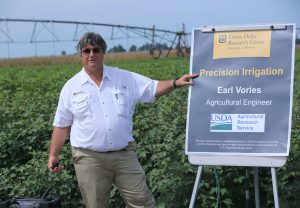
July 29, 2021
Studying Variable Rate Technology
Earl Vories has been researching variable rate irrigation in cotton fields at the Fisher Delta Research Center.
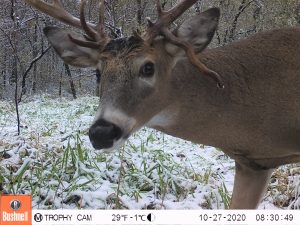
July 14, 2021
A SNAPSHOT of Wildlife Patterns Nationwide
Wildlife behavioral patterns have been tracked by researchers across the United States for years. While many individual research studies have been done on this topic, a snapshot of the United States as whole, has not. Summer LaRose, research wildlife biologist at the University of Missouri (MU) in College of Agriculture, Food and Natural Resources (CAFNR), participated in a nationwide study tracking wildlife pattern. The paper was titled SNAPSHOT USA 2019: A Coordinated national Camera Trap Survey of the United States. In total, over 83 species of mammals and 17 bird species were identified. The top 10 most common species identified…
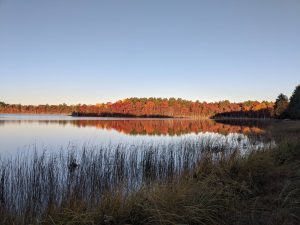
July 1, 2021
Studying Oxygen Levels in Lakes Around the World
A recent study shows that oxygen levels in temperate lakes around the world are declining rapidly, a trend that is largely driven by warming temperatures that threatens freshwater biodiversity and drinking water quality. Rebecca North, assistant professor of limnology in the University of Missouri (MU) College of Agriculture, Food and Natural Resources (CAFNR), took part in a world-wide study, which used data from over 400 lakes around the world, looking at oxygen levels. Of the 400 lakes studied, data from 30 reservoirs in the state of Missouri were used. The paper, titled Widespread Deoxygenation of Temperate Lakes, was recently…
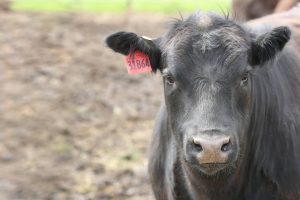
June 25, 2021
Supporting Future Scientists
Two postdoctoral fellows in the Division of Animal Sciences have received Lalor Foundation fellowships in the past three years.
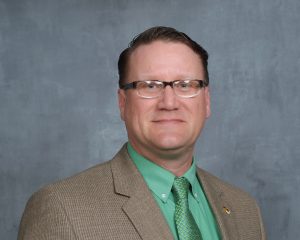
May 14, 2021
A Humbling Opportunity
As an alum of the University of Missouri, Bryon Wiegand has worked at his alma mater since 2007, in the College of Agriculture, Food and Natural Resources (CAFNR) Division of Animal Sciences. Wiegand first joined Mizzou as an associate professor and has served as a professor in the division since 2015, with assignments in teaching, research and Extension. He was named the associate division director in 2019 – and was recently tapped as the director of the Division of Animal Sciences. The new role is effective Saturday, May 15. “As a Mizzou alum, I am humbled to have the opportunity…
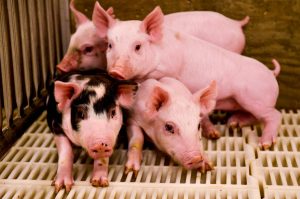
April 27, 2021
Enhancing Animal Reproduction
The United States Department of Agriculture’s (USDA) National Institute of Food and Agriculture (NIFA) awarded nearly $11 million in funding for grants related to enhancing animal reproduction, and improving the welfare and well-being of agriculture animals. Researchers in the University of Missouri College of Agriculture, Food and Natural Resources (CAFNR) Division of Animal Sciences earned three of the 15 grants related to enhancing animal reproduction. MU was awarded just more than $1 million of the $6.72 million total investment in animal reproduction. “Our researchers in the Division of Animal Sciences continue to make great strides related to animal reproduction research,”…
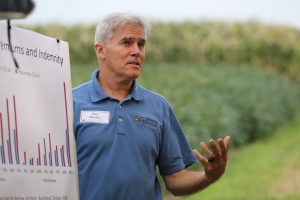
April 8, 2021
Nudging Landowners and Tenants Toward Environmental and Social Stewardship
Ray Massey, Extension professor, and Michelle Segovia, assistant professor, both faculty of agricultural and applied economics in the Division of Applied Social Sciences, recently received a grant from USDA’s National Institute of Food and Agriculture (NIFA). The grant is for $498,833 and is titled, “Nudging Landowners and Tenants Toward Environmental and Social Stewardship.” The grant was part of a recent $11.5-million USDA research investment to help ensure America’s small and medium-sized farms become more profitable and improve the quality of life in American farm communities. “The ultimate goal of our project is to promote societal goals by fostering new leasing…
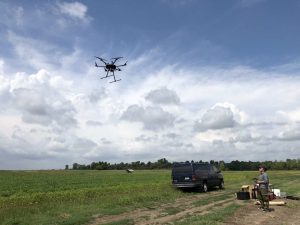
April 7, 2021
A Different Perspective
High yield potential is often the top trait crop breeders look at, as higher yielding crops can lead to more money in a producer’s pocket. Researchers in the University of Missouri College of Agriculture, Food and Natural Resources (CAFNR) conduct a variety of trait-related trials through various breeding programs. The Precision and Automated Agriculture Lab (PAAL) in the CAFNR Division of Food Systems and Bioengineering recently teamed up with researchers in the CAFNR Division of Plant Sciences to study yield estimation of soybean breeding lines under drought stress using unmanned aerial vehicle-based imagery and convolutional neural network. Their work…
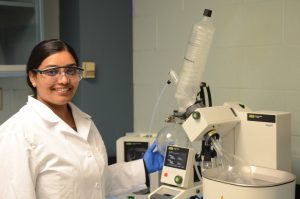
March 18, 2021
Food Innovations to Address Sustainable Development Goal (SDG) 2 – Zero Hunger
Kiruba Krishnaswamy, assistant professor of food science in the Division of Food Systems and Bioengineering, recently received a VentureWell Faculty Grant that will support a new course that incorporates experiential learning to create innovative solutions in food and agricultural systems. The course will be aligned with the UN Sustainable Development Goal to eradicate hunger. “Students will learn about global challenges in food systems, including chronic hunger and hidden hunger, and learn how to become agents of change through food systems innovation,” Krishnaswamy said. Krishnaswamy was one of 13 recipients from across the United States who were chosen through a competitive…
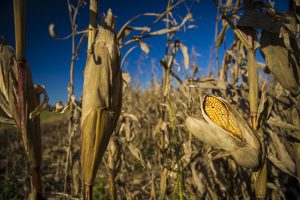
March 12, 2021
Agricultural Markets Still Face Uncertainty, but University of Missouri Analysts See Signs of Optimism
Farm income could decline in 2021, in spite of large increases in the value of crop and livestock sales, according to the latest analysis of national and global agricultural trends from the University of Missouri. Lower government payments and higher farm production costs could outweigh the increase in sales. Even with the decline projected by analysts at the Food and Agricultural Policy Research Institute (FAPRI), net farm income of $112 billion in 2021 would still be much higher than it was from 2015-2019. Net farm income increased to $121 billion in 2020, the highest level since 2013, primarily because…